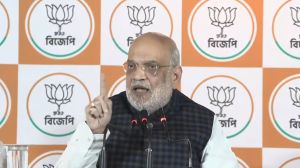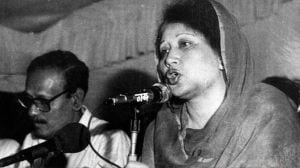Lessons from Bhopal
That fatal gas leak of December 1984, which made Bhopal synonymous with industrial disasters the world over, has yielded innumerable lessons...

That fatal gas leak of December 1984, which made Bhopal synonymous with industrial disasters the world over, has yielded innumerable lessons 8212; mostly on how not to manage such tragic events. One of the many challenges thrown up by it was to measure the human suffering it caused in terms of deaths and personal injury and to translate something so obvious, yet so intangible, into a monetary compensation. At one level, such a calculation would appear impossible because hard cash cannot adequately compensate for distress of such unprecedented magnitude. But there is no escape from making it.
Looking back, it would appear that we more or less muddled through that whole process of compensation. The welfare commissioner 8212; appointed under the Bhopal Gas Disaster Processing of Claims Act, 1985, to disburse the compensatory sum of 470 million that Union Carbide Corporation made available in 1989 8212; had the unenviable task of judging not just who got compensated and who did not, but what each individual should get. The fact that the claimants ran into tens of hundreds could not have helped matters. Long after this process was completed, the belief persisted that Bhopal8217;s victims had not been adequately compensated for the tragedy that visited them on that fateful December night. The average compensation was overly conservative 8212; only 15 per cent of the maximum allowed, according to one estimation. That is why we must welcome the latest Supreme Court order directing that an outstanding sum of Rs 1,505 crore 8212; which resulted from the interest that accrued on the residual amount left over from the original corpus after that first disbursal and helped by a favourable exchange rate 8212; must go to the victims on a pro-rata basis. The apex court was only acknowledging the fact that this money rightly belonged to those who were the victims of that tragedy. Indeed, it should have reached them years earlier and through a less tortuous route.
All this should prompt us to re-examine our compensation regime and make it more transparent, accountable and efficient for those who have had to face such disasters and there must be a more informed public debate on the issue. Take, for instance, the innovative ways in which the post-9/11 period was managed. There were response hotlines and free legal services that victims could access. Those seeking to make claims were automatically entitled to preliminary expert guidance so that they could assess their options before seeking redressal. Volunteer lawyers were assigned to each individual to assist with his or her particular needs. Bhopal8217;s victims, in contrast, were left largely to their own devices in their hour of greatest need and despair. We need to ensure that the victims of future disasters and tragedies do not meet with their fate.
- 01
- 02
- 03
- 04
- 05































